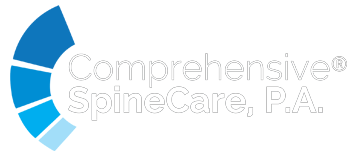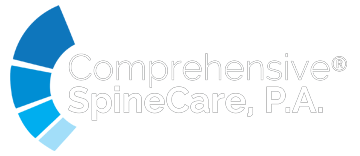What Is Scoliosis?
Scoliosis is the condition where the spine has a major sideways curvature in an s-shape or c-shape. Many people often have minor curvature in their spine, but slight deviations do not usually demand medical treatment. Idiopathic Scoliosis is most commonly diagnosed in adolescent teens as their bodies will have rapid transformation as they grow including the growth and expansion of the spine. Whether you currently have scoliosis or have never been diagnosed, complications from a curved spine can worsen with age.
Idiopathic Scoliosis vs Degenerative Scoliosis
Anyone can develop scoliosis at any age, but scoliosis developed from an unknown cause most commonly appearing in children aged 11 and older is called idiopathic scoliosis. Females are more likely to develop this type of scoliosis and most schools & pediatricians will have annual spine health checks to track the progress of any curvature.
Adults usually develop a different type of scoliosis called degenerative scoliosis. Degenerative scoliosis is characterized by a spine curvature caused by degeneration of the moving parts of your spine. Although it is caused by the loss of spinal cushioning materials, many symptoms of this type of scoliosis mirror those of idiopathic scoliosis.
What Are the Symptoms Of Scoliosis?
Scoliosis is not something that is detected right away. It usually progresses slowly as people age. Patients have different signs of scoliosis depending on the severity of the case and their age. The more curved your spine is the more symptoms you will have. Popular signs and symptoms of scoliosis can include:
- One shoulder blade appears more prominent than the other
- Uneven waist
- One hip higher than the other
- One side of the rib cage jutting forward
- A prominence on one side of the back when bending forward
What Are Some Causes Of Scoliosis?
For the cases of scoliosis where the cause is idiopathic, or unknown, researchers believe there is a combination of several factors that may lead to the disorder. These factors include genes, hormones, and changes in cell structures.
In other cases, scoliosis happens when another condition or trauma causes the spine to curve. These include:
- Congenital factors occur during the development of the spine when the baby is in the womb, leading to a curve in the spine.
- Genetic diseases occur when changes happen in one or more genes.
- Injury to the spine, commonly from trauma to the spine or back.
- Neuromuscular diseases, affect the nerves that send signals to muscles, resulting in muscle weakness and loss.
- Tumors can cause physical changes to the spine.
While most people with scoliosis have a mild form of the disorder, scoliosis may sometimes cause complications, including:
- Respiratory problems.
- Low back pain.
- Lower self-esteem.
- Persistent pain if there is wear and tear of the spine bones.
- Leakage of spinal fluid.
How Is Scoliosis Treated?
Treatments for scoliosis vary depending on your age. For adolescents common treatments include:
- A type of brace may be an option depending on the age of the child and the size of the curve.
- Surgery may be necessary for some children to prevent further progression of the curve as the child becomes older.
Treatments for adults with Scoliosis include:
- Anti-inflammatory medications
- Epidural Injections where anti-inflammatory medications are injected directly into the affected area and surrounding tissues.
- Corrective surgery for severe cases and trauma.
Getting Help
The symptoms of scoliosis are chronic and will continue to worsen over time without corrective care and pain treatment. If you are experiencing any symptoms related to scoliosis contact Comprehensive Spine Care specialists in Westwood, NJ. Our team of Board Certified Orthopaedic Spine Surgeons are experienced in all aspects of spinal care conditions including scoliosis and tumor surgery. With many minimally invasive treatment options, we are dedicated to finding the solution that treats your symptoms and condition most effectively. Call (201)634-9170 to schedule your consultation and find effective relief with excellent care.










